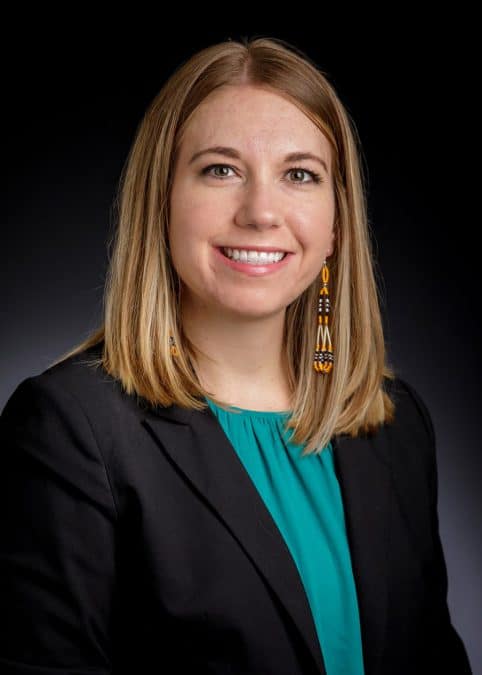A May 2018 clinical psychology graduate of Oklahoma State University, Ashley Cole’s primary area of research is suicide prevention with an emphasis in health disparities among Native Americans.
According to a 2014 report released by Indian Health Service, suicide is the second-leading cause of death for American Indians and Alaska Natives between the ages of 15 and 24, only trailing accidental deaths. With a suicide rate four times higher than their non-Native peers, Native youth account for 64 percent of all suicides in Indian Country.
Among American Indians and Alaska Natives of all ages nationwide, the suicide rate is 16.93 for every 10,000 people, with even higher rates among Indigenous Oklahomans.

Cole was pulled into the area by a stint with a crisis helpline while in undergraduate school at the University of Oklahoma. That in turn led to an internship through OSU’s American Indians Into Psychology with a mentor who primarily focused on suicide prevention efforts in minority communities.
“I found a lot of people shy away from that because it’s a tough topic,” Cole said. “It’s hard to talk about that, and I get it. I just found I wanted to help people and this didn’t make me as uncomfortable as it does for others.”
A former CPN scholarship recipient, Cole is currently one of three post-doctorate fellows specifically brought on by OSU’s College of Arts and Sciences to further diversify its faculty.
As part of the two-year program, Cole and the other two post-doctorate fellows will teach one course each semester, plus have protected, guaranteed time to conduct research. Cole is using some of those protected hours to see patients at a local clinic in order to progress towards becoming a licensed therapist.
“I want to go into academia, but I value the importance of clinical work, so I want to continue that as well,” she said. “It may be in a supervisory role with students in the future or a part-time effort, but it is still important.”
By staying in academia, Cole sees it as an opportunity to pay it forward and support future Native psychologists and psychiatrists. With almost 1,000 Native students enrolled as of fall 2018, Oklahoma State University has one of the largest Native student populations of any land grant university. However, the numbers nationally hint at the continued need for additional mentors.
According to data published in December 2017 by the U.S. Department of Education, 3,494 master’s degrees and 861 doctoral degrees nationwide were awarded to Indigenous students across all disciplines during the 2013-2014 academic year.
“I really value mentoring,” she said. “A lot of my family members didn’t go to college when I started undergraduate school … have had a couple cousins go since then. I wouldn’t be where I am without great mentors and teachers along the way.”
Read about the behavioral health services Citizen Potawatomi Nation offers here.
